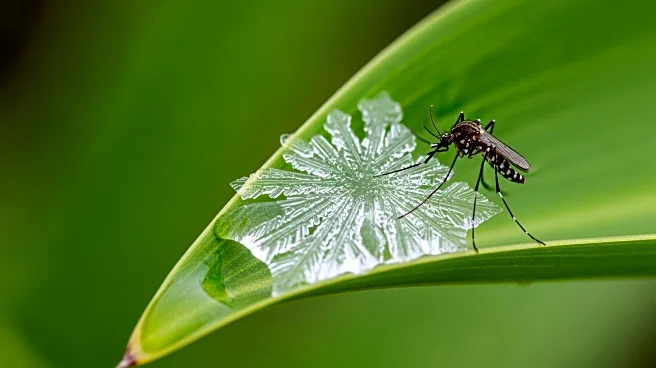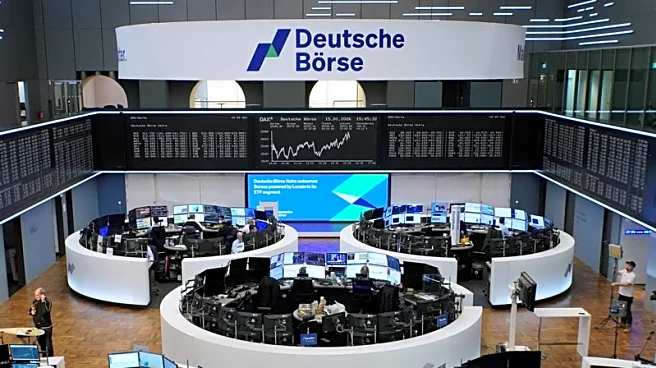What's Happening?
Iceland, one of the last places on Earth believed to be free of mosquitoes, has now detected the bloodsucking insects in its territory. Scientists at the Natural Science Institute of Iceland confirmed
this week three recent mosquito sightings. The institute shared photos of the insects, saying that a male and two females were found near a garden rope that had been soaked in red wine to attract butterflies in Kjós municipality, north of the capital of Reykjavík. The discovery suggests that one of the world’s last fortresses for mosquito-free living may have fallen, potentially linked to global warming.
Why It's Important?
The presence of mosquitoes in Iceland is a significant indicator of climate change's impact on global ecosystems. Rising temperatures and milder winters are creating more favorable conditions for mosquitoes to survive and reproduce in regions previously too cold for them. This development could have implications for local biodiversity and public health, as mosquitoes are known carriers of various diseases. The situation highlights the urgent need for climate action and adaptation strategies to mitigate the effects of global warming on vulnerable regions.
What's Next?
Scientists will continue to monitor the mosquito population in Iceland to assess their potential establishment and impact on local ecosystems. Research may focus on understanding the conditions that allowed mosquitoes to thrive and the role of human activities in their introduction. The Natural Science Institute of Iceland may collaborate with international experts to develop strategies for managing mosquito populations and preventing disease transmission. Public awareness campaigns could be initiated to educate residents about preventive measures and the importance of reporting sightings.
Beyond the Headlines
The discovery of mosquitoes in Iceland raises broader questions about the ethical and environmental implications of human activities on natural habitats. It underscores the need for responsible global practices in shipping and trade to prevent unintended ecological consequences. The situation also prompts discussions on climate change adaptation strategies and the role of citizen scientists in monitoring environmental changes. As Iceland navigates this new challenge, it may serve as a case study for other regions facing similar ecological shifts due to climate change.











